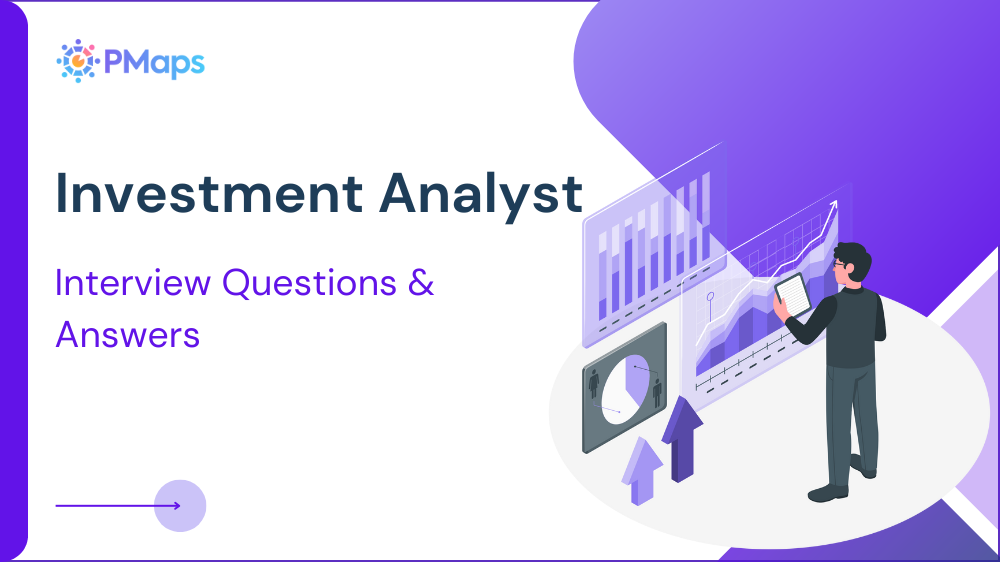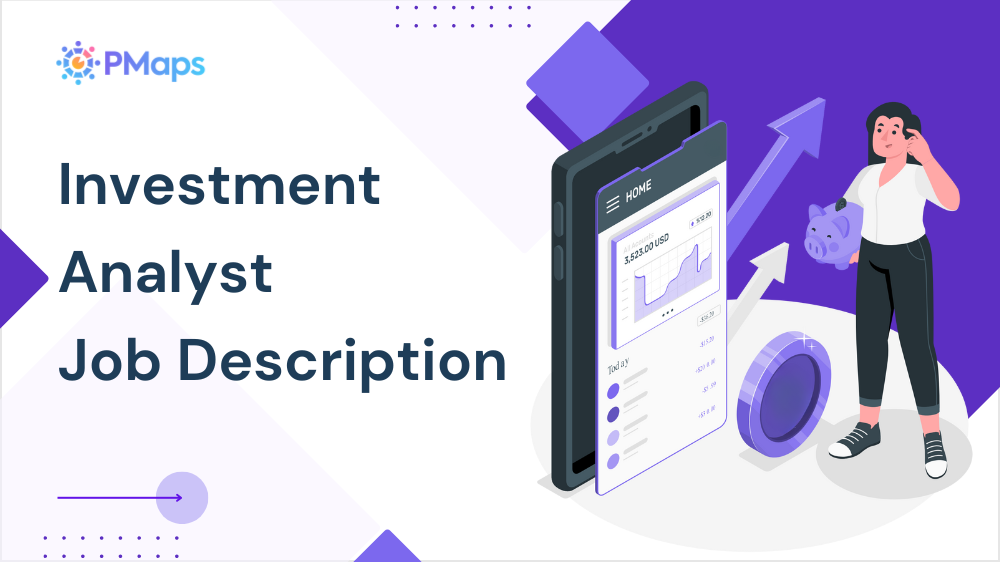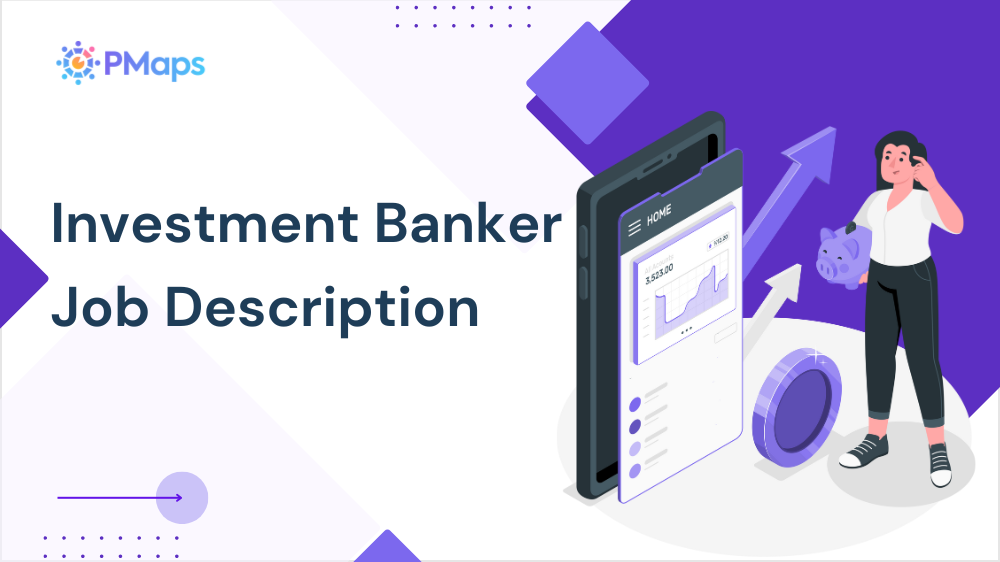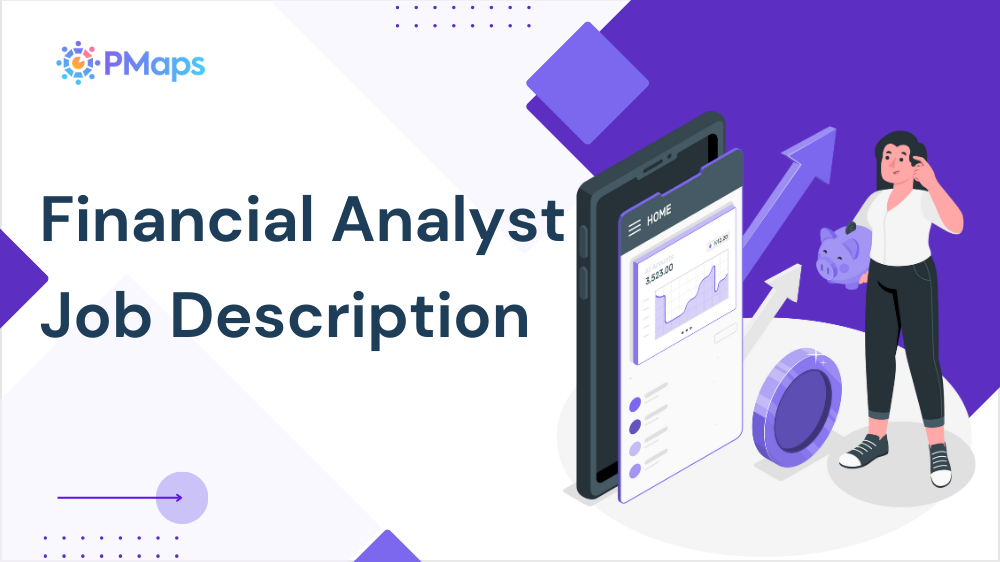
Investment Analysts play a pivotal role in evaluating investment opportunities, conducting market research, and analyzing financial trends. Their ability to provide actionable insights can make or break investment decisions. As the financial markets continue to evolve, hiring an Investment Analyst who can keep pace with industry trends and complex data is crucial for any financial institution or investment firm.
Still unsure? The Investment Analyst Assessment adds clarity.

To help you evaluate candidates effectively, we’ve compiled a list of 25 essential investment analyst interview questions. These questions will help you assess their technical proficiency, decision-making skills, and ability to deliver insightful financial analysis. Whether you are hiring for a corporate banking role or an investment firm, these questions will ensure you find a candidate who is capable, analytical, and aligned with your business goals.
Final role review? Open the Investment Analyst Job Description.
General Interview Questions for Investment Analysts
General interview questions help evaluate the candidate’s understanding of investment analysis, their thought process, and their ability to handle the responsibilities of the role. These questions provide insight into their analytical skills, communication abilities, and how they manage key tasks in the investment field.
1. Can you describe your experience with financial modeling and analysis?
What it Assesses:
Technical proficiency in financial modeling, attention to detail.
What to Listen For:
Look for a candidate who is well-versed in using financial models for valuation, forecasting, and analysis. They should mention specific tools or software (like Excel or financial modeling software) and explain how they’ve used them to drive investment decisions.
Sample Ideal Answer:
“I’ve built financial models for company valuations, including discounted cash flow (DCF) analysis, and comparative company analysis. I’ve used Excel extensively, leveraging functions like pivot tables and macros to streamline my process and ensure accuracy. These models have helped my team make informed decisions on investments and acquisitions.”
2. How do you stay informed about financial markets and trends?
What it Assesses:
Commitment to continuous learning, understanding of market trends.
What to Listen For:
Candidates should mention reliable sources for financial news, such as Bloomberg, Reuters, or specific financial publications. They may also talk about attending industry conferences, webinars, or networking with professionals in the field to stay updated.
Sample Ideal Answer:
“I follow financial news from Bloomberg and The Wall Street Journal daily, and I subscribe to sector-specific reports. I also attend webinars on market trends and participate in finance-focused networking groups to ensure I stay updated on emerging trends and economic shifts.”
3. How do you approach risk analysis when considering investment opportunities?
What it Assesses:
Risk management, ability to analyze investment opportunities critically.
What to Listen For:
Look for a structured approach to risk analysis, such as assessing market volatility, industry-specific risks, and economic factors. Candidates should show how they balance risk with return and consider both quantitative and qualitative factors.
Sample Ideal Answer:
“I assess risk by analyzing financial ratios, industry trends, and macroeconomic conditions. I look at the historical performance of the asset, its volatility, and the potential for market shifts. I also consider qualitative factors like management quality and strategic fit to gauge overall investment risk.”
4. What role do you believe an Investment Analyst plays in the investment decision-making process?
What it Assesses:
Understanding of the investment process, decision-making role.
What to Listen For:
Candidates should describe how they contribute to the investment process, from gathering data to conducting analysis and presenting recommendations. They should understand the value of their role in supporting senior decision-makers with actionable insights.
Sample Ideal Answer:
“As an Investment Analyst, my role is to provide detailed analysis and insights on potential investment opportunities. I gather and analyze financial data, market trends, and industry reports. Based on my findings, I prepare recommendations for senior management, ensuring that investment decisions are data-driven and aligned with the company’s strategic objectives.”
5. Can you describe a time when your analysis influenced an investment decision?
What it Assesses:
Impact of analytical skills, ability to present findings.
What to Listen For:
Look for a candidate who can describe a specific situation where their analysis directly contributed to a positive investment decision. They should explain the analysis they conducted and how their insights led to the decision-making process.
Sample Ideal Answer:
“In my previous role, I analyzed the financial health of a potential acquisition target. My report highlighted several risk factors, including high debt levels and declining cash flow, which led the team to reassess the deal. Based on my findings, the decision was made to hold off on the acquisition until the target company improved its financial stability.”
Behavioral Interview Questions for Investment Analysts
Behavioral questions are critical to understanding how candidates apply their analytical skills in real-world scenarios. These questions provide insight into their problem-solving abilities, work ethic, and approach to managing challenges within the context of investment analysis.
1. Tell me about a time when you had to analyze a large volume of data to make an investment recommendation. How did you approach it?
What it Assesses:
Analytical skills, data management, and decision-making under pressure.
What to Listen For:
Candidates should explain how they organized and prioritized large data sets, which tools or methods they used to analyze the data, and how they derived actionable insights from the analysis. Look for structured problem-solving and time management skills.
Sample Ideal Answer:
“I was tasked with analyzing market data for several potential investment opportunities in the tech sector. I started by categorizing the data by industry trends and company performance metrics. Using Excel, I ran statistical models to identify patterns and opportunities. After analyzing the data, I recommended investing in a specific company with consistent growth, which turned out to be highly profitable.”
2. Describe a situation where you identified an investment opportunity that others overlooked. How did you present your findings?
What it Assesses:
Attention to detail, initiative, and communication skills.
What to Listen For:
Candidates should demonstrate how they identified the opportunity, their reasoning behind the find, and how they communicated the opportunity to stakeholders. They should also describe how they influenced the decision-making process.
Sample Ideal Answer:
“During a quarterly review, I noticed an undervalued company with strong fundamentals but poor market sentiment. I presented my findings through a detailed report, highlighting their stable revenue and expansion potential. I convinced the team to conduct further research, and we ultimately made a profitable investment in that company.”
3. Tell me about a time when you had to make a decision based on incomplete information. How did you handle it?
What it Assesses:
Decision-making, risk management, and handling ambiguity.
What to Listen For:
Candidates should explain how they managed the uncertainty, what steps they took to gather additional information, and how they made the final decision. They should demonstrate the ability to weigh risks and make decisions even when all the data isn’t available.
Sample Ideal Answer:
“While analyzing an international market for expansion, there were gaps in the economic data due to limited reports from that region. I worked with local experts and industry analysts to gather as much qualitative data as possible. I recommended a cautious investment with a focus on monitoring regional trends, which later proved successful as the market grew rapidly.”
4. Describe a situation where you had to present your analysis to senior management or clients. How did you ensure your findings were understood?
What it Assesses:
Communication skills, clarity in presenting data, and stakeholder management.
What to Listen For:
Look for candidates who describe how they tailored their presentation to the audience, using clear visuals or simplified explanations where needed. They should demonstrate how they made complex data accessible to senior leaders or clients.
Sample Ideal Answer:
“I was asked to present an investment analysis for a new emerging market to senior management. I created a clear presentation with visuals, focusing on key data points and potential risks. I avoided technical jargon and highlighted how the opportunity aligned with our overall strategy. I also prepared answers for anticipated questions to ensure clarity.”
5. Tell me about a time when you made a mistake in your analysis. How did you address it?
What it Assesses:
Accountability, learning from mistakes, and problem-solving.
What to Listen For:
Candidates should demonstrate honesty and maturity in owning up to the mistake, while also showing how they corrected it. They should describe the steps taken to rectify the error and prevent future issues.
Sample Ideal Answer:
“I once miscalculated a company’s valuation during a merger analysis due to an incorrect assumption about its revenue projections. Once I realized the error, I corrected the calculations and informed my team. I worked overtime to update the report and presented the revised version to the client, ensuring they were fully informed of the changes.”
Situational Interview Questions for Investment Analysts
Situational questions help interviewers gauge how candidates think on their feet, how they approach complex scenarios, and how they apply their analytical skills to solve problems. These questions provide insight into their decision-making process and ability to navigate ambiguity.
1. If you were asked to evaluate a potential investment in a market you're unfamiliar with, how would you approach the analysis?
What it Assesses:
Research skills, adaptability, and ability to handle unfamiliar situations.
What to Listen For:
Candidates should explain how they would gather data, research the market, and identify key trends. They should show a logical approach to evaluating unfamiliar opportunities, using both qualitative and quantitative analysis.
Sample Ideal Answer:
“I would start by researching the market using reputable financial sources and reports. I’d look into the country’s economic conditions, industry trends, and competitor performance. I’d also reach out to industry experts or local contacts to gain deeper insights. I would then analyze the data I’ve collected, benchmark it against similar markets, and build a financial model to forecast potential returns.”
2. How would you handle a situation where you have to make an investment recommendation with incomplete or contradictory data?
What it Assesses:
Risk assessment, decision-making under uncertainty, and critical thinking.
What to Listen For:
Look for a candidate who demonstrates a calm approach to uncertainty. They should explain how they would evaluate available data, consider potential risks, and weigh the pros and cons of proceeding with an investment despite gaps in information.
Sample Ideal Answer:
“In this scenario, I would first identify the most critical data missing and assess how much it impacts the overall investment decision. I would make a conservative recommendation based on the data I do have and suggest additional research to fill the gaps. If there’s still uncertainty, I’d consider a phased approach to investment or set up milestones for further analysis.”
3. If you were given an underperforming portfolio, how would you identify areas for improvement and address performance issues?
What it Assesses:
Problem-solving, portfolio management, and performance improvement.
What to Listen For:
Candidates should demonstrate a methodical approach to analyzing portfolio performance. They should mention evaluating individual assets, identifying underperforming sectors or investments, and suggesting corrective actions like rebalancing or adjusting risk exposure.
Sample Ideal Answer:
“I’d begin by analyzing the portfolio’s performance relative to benchmarks, and evaluate the individual assets to identify underperforming investments. I’d assess whether the issue lies in the asset selection, market conditions, or an imbalance in risk exposure. From there, I’d recommend either divesting from underperforming assets or reallocating resources into higher-performing opportunities. I would also review the overall investment strategy to ensure it aligns with the client’s goals.”
4. How would you approach building a financial model for a new, complex investment product?
What it Assesses:
Technical skills, financial modeling expertise, and ability to work with new products.
What to Listen For:
Look for candidates who can break down the process of building a financial model, such as understanding the key inputs, assumptions, and forecasting methods. They should describe how they would approach building the model from scratch and ensure its accuracy.
Sample Ideal Answer:
“I’d start by gathering all available data and understanding the key drivers of the investment product. I’d focus on identifying key assumptions and determining the appropriate forecasting methods, such as discounted cash flow (DCF) or sensitivity analysis. I would build the model in stages, constantly testing for consistency and accuracy, and seek feedback from team members or experts before finalizing it.”
5. If you were given a high-risk investment opportunity, how would you evaluate whether it's worth pursuing?
What it Assesses:
Risk management, strategic thinking, and decision-making.
What to Listen For:
Candidates should discuss their approach to evaluating high-risk investments, considering both potential rewards and risks. They should mention conducting a thorough risk assessment, identifying mitigating factors, and analyzing the investment’s alignment with overall strategy and goals.
Sample Ideal Answer:
“I would start by analyzing the potential return on investment and comparing it to the risks involved. I would assess the market volatility, the company’s financial health, and any external factors that might impact performance. I would also consider how this opportunity fits with the overall investment strategy and risk tolerance. If the potential return justifies the risk and it aligns with strategic goals, I would present the opportunity to stakeholders, outlining both the upside and risks.”
Technical or Functional Interview Questions for Investment Analysts
Technical questions allow interviewers to assess the candidate's proficiency with the tools and techniques critical to the role of an Investment Analyst. This includes financial modeling, valuation methods, and market analysis. These questions ensure that the candidate has the necessary expertise to support data-driven investment decisions.
1. What is the difference between discounted cash flow (DCF) and net present value (NPV)? How do you use them in investment analysis?
What it Assesses:
Knowledge of financial valuation methods.
What to Listen For:
Candidates should clearly differentiate between DCF and NPV, explaining that DCF is a method for estimating the value of an investment based on its future cash flows, while NPV calculates the difference between the present value of cash inflows and outflows. Both methods are crucial for evaluating the financial viability of investments.
Sample Ideal Answer:
“DCF is used to estimate the value of an investment based on its expected future cash flows, which are discounted to the present value using a discount rate. NPV is used to determine the profitability of an investment by subtracting the present value of cash outflows from the present value of inflows. I use DCF when evaluating long-term projects and NPV for comparing various investment opportunities to see which will deliver the highest return.”
2. Can you walk us through how you would value a company? What methods would you use?
What it Assesses:
Valuation skills and technical expertise.
What to Listen For:
Candidates should mention commonly used valuation methods such as DCF, comparable company analysis (CCA), and precedent transaction analysis. They should describe how they would select the most appropriate method depending on the situation and available data.
Sample Ideal Answer:
“To value a company, I typically start with a DCF analysis, where I forecast the company’s future free cash flows and discount them to the present value using an appropriate discount rate. I would also look at comparable company analysis to see how the company stacks up against others in the same industry. Additionally, I might use precedent transaction analysis to assess what similar companies were valued at in previous transactions.”
3. How do you assess the financial health of a company? What key ratios do you consider?
What it Assesses:
Financial analysis, knowledge of financial ratios.
What to Listen For:
Candidates should mention key ratios like liquidity ratios (current ratio), profitability ratios (return on equity), and solvency ratios (debt-to-equity ratio). They should also describe how these ratios help assess a company’s ability to meet obligations, generate profits, and manage debt.
Sample Ideal Answer:
“I assess a company’s financial health by reviewing key ratios such as the current ratio for liquidity, return on equity for profitability, and debt-to-equity ratio for solvency. I also look at trends in revenue and net income growth, as well as cash flow to ensure that the company can sustain operations and service debt. These ratios provide a comprehensive view of the company’s overall financial health.”
4. What is a leveraged buyout (LBO) model, and how would you structure one for a potential acquisition?
What it Assesses:
Understanding of LBO models and their application in investment banking.
What to Listen For:
Look for candidates who explain the process of financing an acquisition with a significant amount of debt, emphasizing the role of equity and debt in structuring the deal. They should also mention how an LBO model is used to assess the potential return on investment through leveraging debt.
Sample Ideal Answer:
“A leveraged buyout (LBO) model is used to assess the viability of acquiring a company with a large portion of the purchase price financed by debt. The model forecasts future cash flows of the target company to determine if they can cover the debt payments. I would structure the LBO by evaluating the target’s cash flow stability and calculating the potential return on equity for investors. The key is ensuring that the company generates enough cash flow to service the debt while providing a satisfactory return.”
5. What tools or software do you use for financial analysis, and how do they assist in your investment process?
What it Assesses:
Familiarity with financial analysis tools and technical proficiency.
What to Listen For:
Candidates should be familiar with common tools like Excel, Bloomberg Terminal, FactSet, or other financial analysis software. They should describe how they use these tools to gather data, perform analysis, and generate reports that support investment recommendations.
Sample Ideal Answer:
“I use Excel for building financial models, including DCF and sensitivity analysis. I also use Bloomberg Terminal for real-time financial data and market analysis. Additionally, I use FactSet for company screening and obtaining industry benchmarks. These tools help me gather accurate data quickly and streamline the analysis process.”
Pro Tips for Interviewing Investment Analysts
Interviewing an Investment Analyst goes beyond testing their technical knowledge. It’s important to assess how they think critically, manage complex data, and provide valuable insights for investment decisions. Here are some expert tips to help you identify top-tier candidates:
1. Test their ability to explain complex concepts clearly
An Investment Analyst must be able to break down complex financial data and present it in a way that non-financial stakeholders can understand. Ask candidates to explain financial concepts, such as DCF or NPV, and assess how well they communicate the key points.
2. Ask candidates to walk through their decision-making process
Understanding a candidate’s thought process is crucial. Ask them to explain how they’ve made a major investment decision in the past, what factors they considered, and how they arrived at their conclusion. Look for logical reasoning and data-driven decisions.
3. Evaluate their ability to handle ambiguity
Investment Analysts often deal with uncertain data and complex scenarios. Pose hypothetical scenarios where they have to make a decision with incomplete information and assess how they manage uncertainty and make informed choices.
4. Assess their experience with financial tools and data sources
A strong candidate should be familiar with financial analysis tools like Excel, Bloomberg, or FactSet. Ask about their experience using these tools and how they’ve leveraged them to create models, track market trends, or support decision-making.
5. Look for candidates who can collaborate with senior decision-makers
Investment Analysts often present their findings to senior management. Ask about a time when they had to present complex analysis to executives or clients, and assess their ability to communicate effectively with stakeholders at different levels.
Conclusion
The right Investment Analyst can be the difference between a profitable investment and a missed opportunity. They bring clarity to complex data, helping businesses make informed, strategic decisions. Beyond financial expertise, the ideal candidate needs strong communication skills, the ability to work under pressure, and a keen eye for market trends. By using the 25 Investment Analyst Interview Questions, you can confidently assess candidates for both technical proficiency and the ability to drive business growth. Ready to hire an expert who can elevate your investment strategy? Take a free trial and demo today to evaluate their skills and make smarter hiring decisions.









